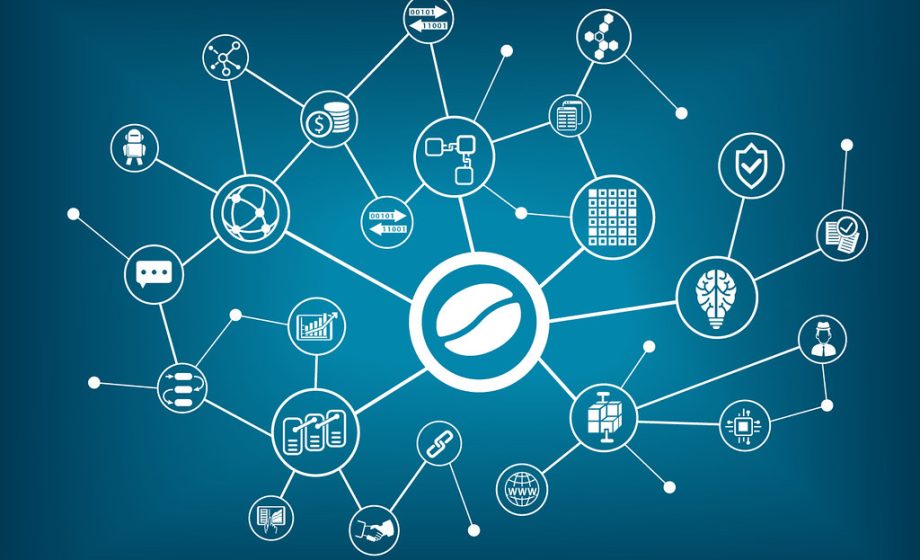There have been several considerations on the hype and widespread adoption of Web3. While others believe it may not live up to the hype, others think Web3 can’t scale sustainably.
Many people ask, can Web3 live up to its hype or expectations?
But we believe that it has come to stay and will profoundly affect the internet.
How Does Web3 Work?
Web3 has dApps (decentralized applications) that run and exist on the blockchain. This indicates that no one organization or person can control the network.
It means that dApps are autonomous and open-source, can make records and data publicly available, and utilize a cryptographic token to secure the network.
Meanwhile, there have been concerns about scalability. And dApps presently have poor usability in several cases.
It’s believed that more technological advancements are required for Web3 to fulfill its full potential.
DeFi is equally a major component of Web3, and this is where Cryptos and NFTs come in. It will involve some token-based economics.
The aim is for the users to exchange currencies without the government or bank’s involvement.
Web3 Vs. Big Techs
Concerns abound on who controls or accesses users’ personal information.
Big techs have always been criticized for their abuse of personal data, alongside their big influence on the internet due to their market dominance.
Web3 is somewhat aiming to reclaim big tech’s dominance and power. It’s about time!
Web 2.0, the present internet, relies on servers and systems owned mainly by big techs. This raises concerns over system control and vulnerability.
In particular, when Meta-based platforms had a global outage in October 2021, which was worsened by its servers’ centralization, many people called for Web3 adoption.
With it, many can govern internet activities instead of the big few.
In other words, data and activities would be hosted on a network of computers via blockchain instead of corporate servers.
This will make the internet activities to be represented by crypto wallets and websites hosted via dapps, and digital applications run on the blockchain.
Importance features of Web3 and why you should believe the hype
Anonymous single-sign-on
It has an anonymous single-sign-on feature that allows one username and authentication method in all accounts and websites rather than individual logins.
The Web3 based-logins won’t need you to relinquish your sensitive personal data control.
Anonymous single-sign-on is different from the present Google or Facebook single-sign-on that gives access to users’ data until they revoke the access.
Meanwhile, all blockchain transactions are public, showing that anyone can see the data and assets assigned to a given wallet.
The transparency is why Crypto wallets are anonymous while being identified by just an address unless you choose to assign your personal details to the wallet.
Tokenization and Individual ownership
Activities are rewarded by a token, either as Crypto or NFT, to incentivize users’ participation while distributing ownership.
Self-governing
There’s also distribution of decision-making power. Blockchains rely on the entire network to verify activities through consensus with no central authority.
However, certain systems like those in decentralized autonomous organizations (DAO) can be created to democratize decision-making depending on the volume or quality of users’ investment into a dapp or site.
For instance, according to their share of platform ownership, users can decide or vote on rules governing a site, which can be executed by smart contracts.
The Web3 Vision
Web3 aims to have a World Wide Web without the control and monopoly of big tech.
This is appealing at a period when trust in large corporations is shaking because of data privacy abuses.
It aims to provide users back the control of their data instead of it being owned and controlled by a few big techs.
The Web3 idea is for data to be kept in decentralized storage and spread across the internet instead of the present set amount of server farms.
How the data is moved will be registered on the blockchain, making the data flow more transparent and without misuse.
It’s now hoped that improvements in AI (artificial intelligence) will help prevent any system abuse.
Web3 proponents want you to imagine Web3 as a return to Internet democracy and freedom.
Is Web3 the future of the internet?
With some good features of Web3, many believe that Web3 can be the future of the internet.
Several people are excited about the Web3 potential. However, it somewhat looks unlikely that Web3 will entirely displace Web 2.0 in the nearest future since there are genuine concerns about how it will run, and even its technology isn’t yet fully evolved.
Though blockchain is innovative and provides several benefits, many still believe that it’s unlikely that the internet would completely build around it.
It looks more likely that Web3 and its technologies would continue to operate alongside Web 2.0. Some aspects of one can be integrated into the other without a total replacement.
Final Say
Jack Dorsey trashed the Web3 trend last week on Twitter, telling users to be wary while dismissing it as an avenue for venture Crypto capitalists.
Yes, Elon Musk, Jack Dorsey, and other large tech CEOs may have their reasons to attack Web3, but building on the blockchain would force firms to be interoperable and provide users property rights to own a piece of the internet.
Photo by Tameez Abramjee from Flickr

